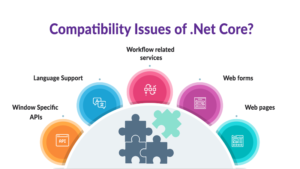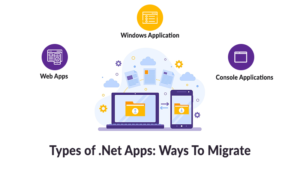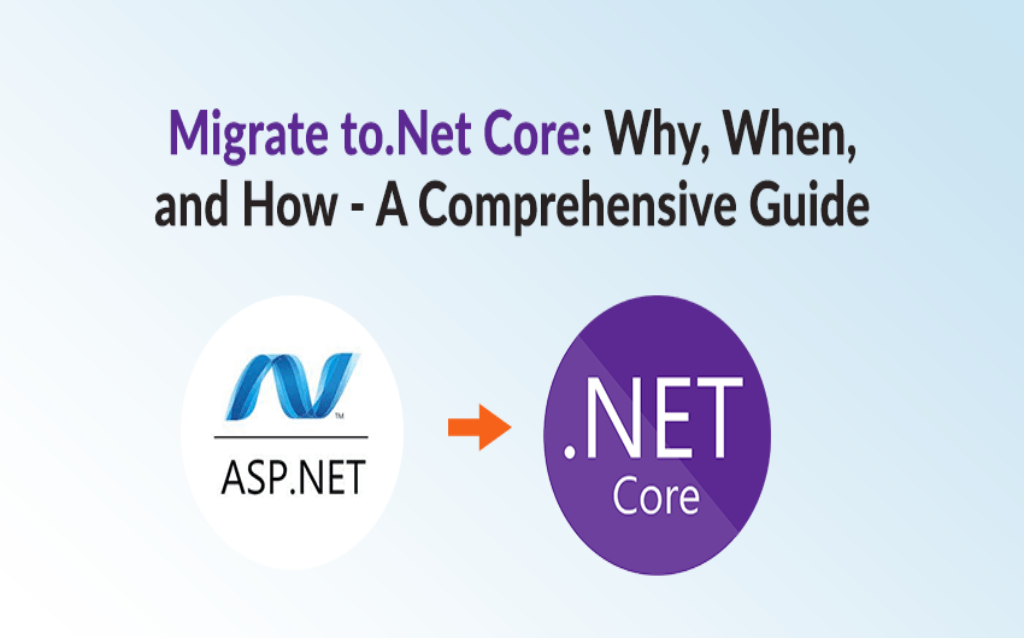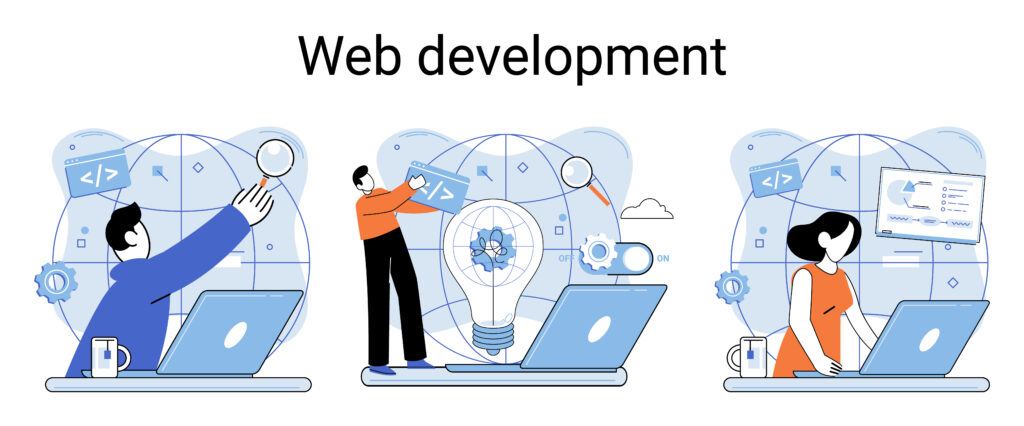Since Microsoft .Net core development services have been in the industry for a while now, many business leaders are wondering if they should migrate to the new version. Microsoft has decided to come up with a unified platform with .Net core replacing the .net framework, and this news has many companies rethinking their approach. However, while .Net core is a newer version, it doesn’t necessarily mean that it’s better. The .net framework is still a reliable and popular choice for many businesses, so it’s important to weigh your options before making a decision.
So, if you’re not sure whether or not to migrate to .net core development services, this blog guide will be of help. Without any further ado, let’s start the discussion.
Why should you migrate to .Net Core?
Microsoft .Net core is an open-source framework that has already been proven to have the ability to build feature-rich web applications. With the upcoming release, developers would be able to target additional applications for Mac, Linux, iOS, tvOS, watchOS, etc. The question is, why should you migrate to this when the industry already has a Mircosoft.Net framework?
There are multiple reasons, but here we are highlighting the top reasons that will convince you to migrate to Microsoft .Net Core application development.
- Scalability
With improved performance and accelerated run time, .Net core’s extensive support when it comes to working across multiple systems is a better option, especially if most applications are hosted and run over the cloud. Microsoft .NET development also offers support for microservices and containers, making it easier to build applications for a cloud-based architecture. This enhances the end-to-end performance of the business.
- Containers & Microservices
Microsoft .Net development is perfect for smaller applications that need to run independently in a standalone environment. Additionally, developers can use different technologies with .Net and support the concept of microservices. With .Net core, developers can use fewer technologies with each microservice. This makes microservices even more lightweight and modular, making them the perfect partner for containers.
- Facilitates Cross-platform Application Development Microsoft .NET Framework is marketed by Windows as a cross-platform solution for building websites, services, and console apps. If your application needs to run on multiple platforms, .NET Core is the right choice as it is compatible with Windows, Linux, and macOS.Now, let’s talk about when you should migrate to .NET Core development.
When Should You Migrate?
If you’ve already done your research and you’re confident that migrating to .net core is the right decision for your technology needs, then the next logical question is when to make the switch. Considering that Microsoft has already accepted that .net core is the future, now is the best time to take the leap. Technology is only expected to grow with time and the more you procrastinate, the tougher it becomes. So, this is the best time to migrate to Microsoft .net core and be future-proof.
You can hire the Microsoft Dot NET core development company if you are looking for a smooth migration for your company.
Compatibility Issues of .Net Core?

Are you ready to make the switch to .net core development services? However, you should be aware that it isn’t 100% compatible with all components. In fact, there are several components that are missing from the architecture. These include: –
- Window Specific APIs
If your application needs to interface with the Windows Registry or WMI, you won’t be able to use .NET Core, since Core is isolated from the underlying OS.
- Language Support
Even though we have VB and F# are said to be compatible with .NET Core development but there are a few project types that do not support them.
- Workflow related services
Workflow and data services are only available with the Microsoft .NET framework.
- Web formsASP .NET web forms are only available with the Microsoft .NET framework.
- Web pages
ASP .NET web pages are not compatible with .NET core.
Types of .Net Apps: Ways To Migrate

Now, let’s move ahead to see what can be migrated to the .NET core version
- Web Apps
If you have a web application built using the .net framework, migration would not be tough. While the front end of the application would require you to port the same to the .net core, migrating the backend is pretty easy.
For migration, follow these steps-
- Start with creating a new .NET core project.
- Opt for migrate/convert startup followed by initialization.
- Next, initiate the migration of static content along with bundle configurations.
- It will migrate views as well as actions.
- Windows Application
Here, we have three different cases-
- For universal platform apps
It does not require any form of migration.
- For Silverlight-based apps
If your app is based on Silverlight, all you need to do is edit the namespaces. Such changes are basic and can be done pretty easily. If you’re not sure how to move ahead with the change, you can use a tool that will do it for you.
- For WinForms and WPF desktop apps
Migrating your application to .NET Core can be tough and complicated, but if you’re looking to adopt Core, you can use the tools “Mono” and “Xamarin” to convert your app into a cross-platform app.
- Console Applications
For the migration of console applications, developers are expected to abide by the limitations imposed in terms of application interaction and host OS. The migration process is simple and straightforward, with little to no room for error.
Tips & Tricks
Here are the following tips and tricks that you must know while migrating to .NET core application development: –
- You can use a Directory. Build. props file to set global properties for your Visual Studio projects. This file affects all projects in the solution directory and can be used to set a conditional building option for all .csprojs files. This is a helpful tool if you want to set building options for all of your projects at once, without having to edit each project file individually.
- If you’re going to follow the multi-step strategy, we also recommend that you upgrade your projects which remain in .NET Framework to version 4.7.2. While you can still have .NET Standard projects alongside Framework 4.6.1 projects, it’s better to upgrade in experience. It’s a trivial step most of the time and one which has the potential of saving you a lot of time due to frameworks’ incompatibilities. Thus, Microsoft also recommends it.
Summing Up!
Migrating to .net core is a big decision that involves more than just coding. Apparently, it can incur extra costs and require additional changes. Before you decide to embrace the change, make sure you have adapted your business to the needs of the platform. Remember, there isn’t any standard method that facilitates migration – it is the application and its functionality that decides how effective the process will be.
If you are looking for the best .NET core development company, aspire software consultancy is there to help you. Their team has a wide range of experience and talent that allows an efficient and seamless process of migration. If you are seeking the best technical guidance in the market that cuts the competitive edge, don’t hesitate to contact them today!












